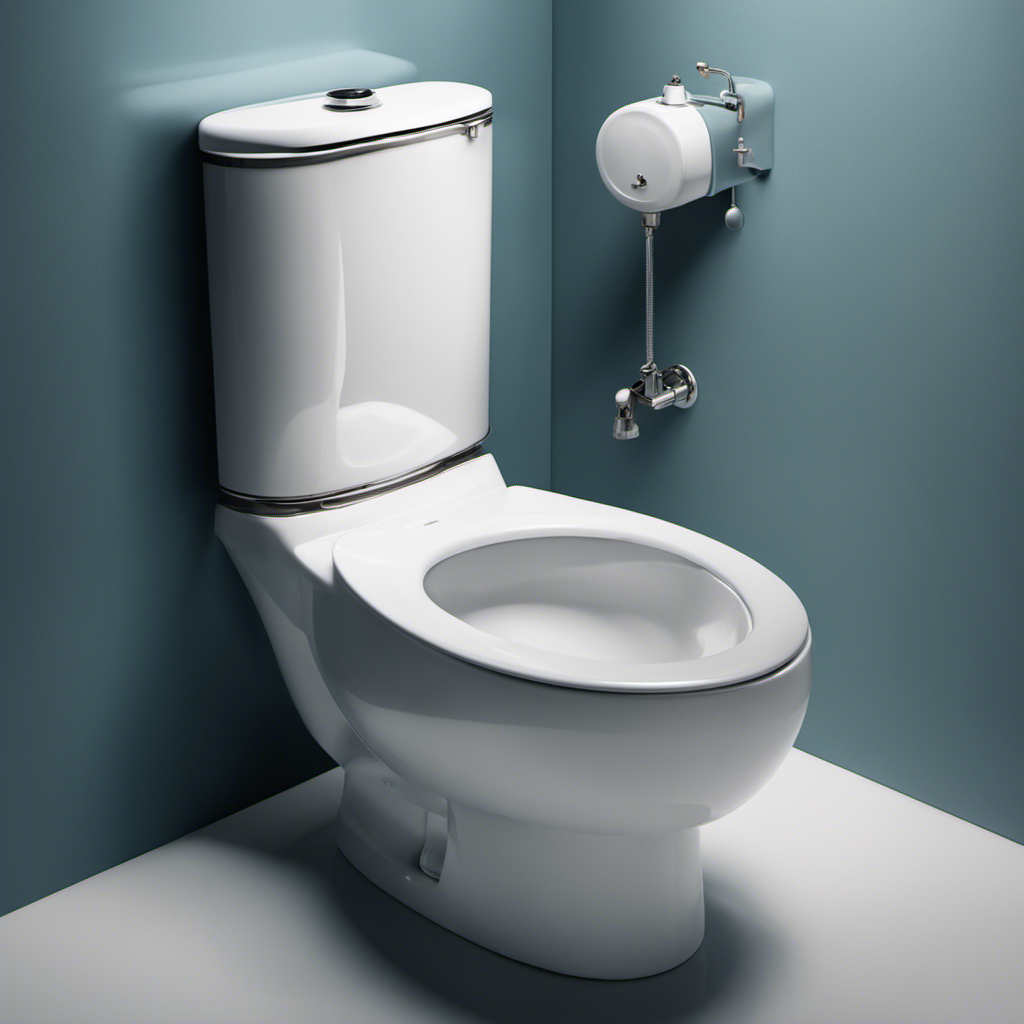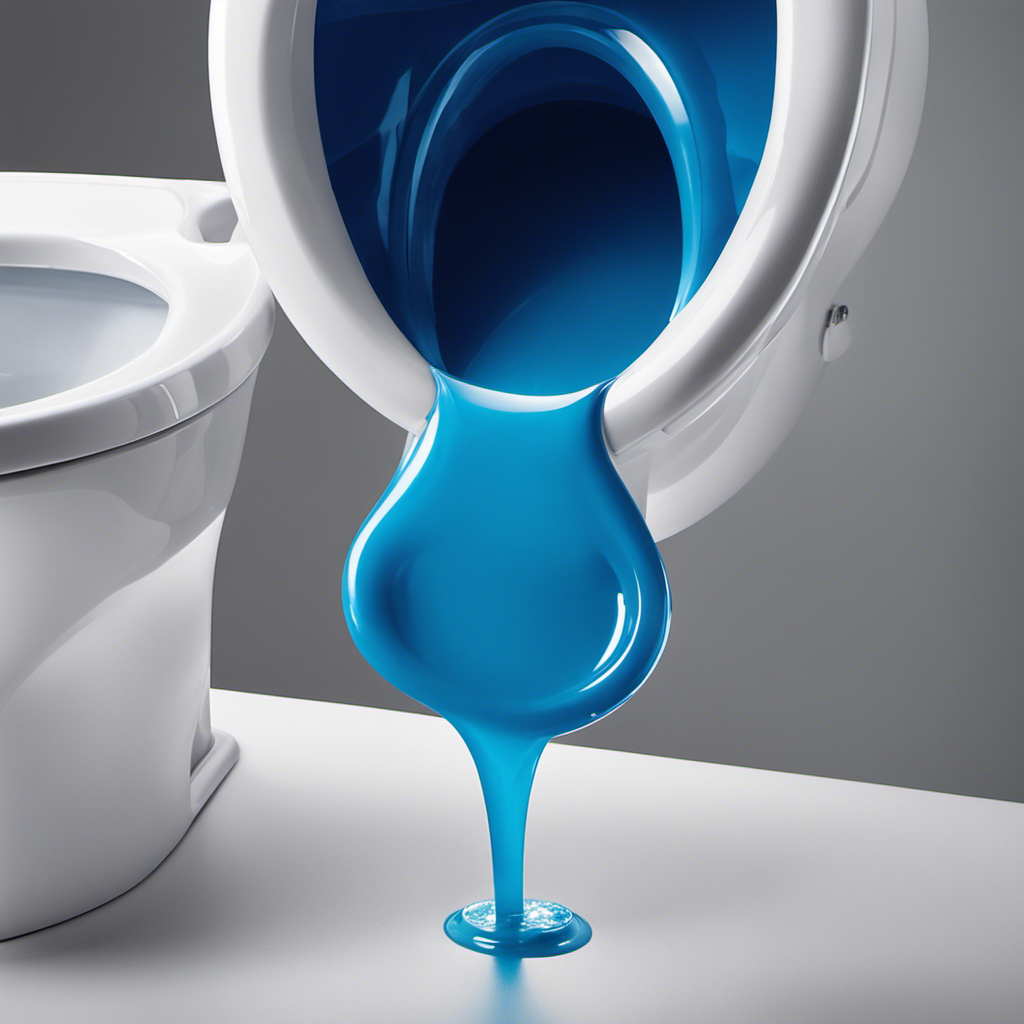When it comes to bathroom habits, we all have our own unique experiences. And one thing no one wants to see is blood on the toilet paper when they wipe. It’s like a red flag, a warning sign that something may not be quite right.
In this article, I’ll explore the causes, symptoms, and home remedies for this unsettling issue. So if you’ve ever wondered why you’re seeing blood on the toilet paper, keep reading to find answers and possible solutions.
Key Takeaways
- Blood on toilet paper when wiping can be caused by various conditions such as hemorrhoids, anal fissures, constipation, diverticulosis, colon cancer, and inflammatory bowel disease.
- The color of the blood can indicate different underlying conditions, with bright red blood suggesting hemorrhoids, anal fissures, rectal polyps, or rectal ulcers, while dark red or maroon blood may indicate diverticulosis, colon cancer, or inflammatory bowel disease.
- Seeking medical evaluation is important for persistent rectal bleeding, as early intervention is crucial for timely treatment and prevention of complications.
- Hygiene practices such as using soft, unscented toilet paper, avoiding excessive wiping, and cleaning the area gently with warm water or unscented wipes can help prevent further irritation and bleeding. Additionally, dietary changes like increasing fiber intake, staying hydrated, and avoiding spicy and acidic foods can promote regular bowel movements and prevent constipation.
Causes of Blood on Toilet Paper
There are several common causes for blood on the toilet paper when you wipe. Contrary to common misconceptions, blood on toilet paper does not always indicate a serious medical condition.
In fact, the most frequent cause is hemorrhoids. These swollen blood vessels in the rectum or anus can bleed during bowel movements.
Another common cause is anal fissures, which are small tears in the lining of the anus. These tears can occur due to constipation or passing hard stools.
It is important to note that while blood on toilet paper can be alarming, it does not necessarily mean you have a life-threatening condition. However, it is always a good idea to consult a healthcare professional if you experience persistent bleeding or other concerning symptoms.
Symptoms and Signs to Watch Out For
If you experience any unusual symptoms or signs while using the restroom, it’s important to pay attention and seek medical advice. Identifying underlying conditions and understanding the different types of rectal bleeding can help determine the cause of blood on the toilet paper. Here is a table that outlines the different types of rectal bleeding and their potential causes:
| Type of Rectal Bleeding | Potential Causes |
|---|---|
| Bright red blood | Hemorrhoids, anal fissures, rectal polyps, rectal ulcers |
| Dark red or maroon blood | Diverticulosis, colon cancer, inflammatory bowel disease |
| Black, tarry stools | Upper gastrointestinal bleeding, peptic ulcers, esophageal varices |
| Mixed with stool | Colorectal cancer, gastrointestinal bleeding, infection |
Home Remedies for Blood on Toilet Paper
One possible sentence could be: ‘Home remedies such as witch hazel or aloe vera gel can help soothe and alleviate discomfort caused by rectal bleeding.’
- Applying witch hazel or aloe vera gel topically can provide relief from itching and inflammation.
- Consuming high-fiber foods like fruits, vegetables, and whole grains can promote regular bowel movements and reduce the strain on the rectal area.
- Drinking plenty of water helps soften the stools, making them easier to pass and reducing the risk of injury to the rectal area.
- Using over-the-counter hemorrhoid creams or ointments can help shrink swollen blood vessels and reduce bleeding.
- Soaking in a warm bath for 15-20 minutes a few times a day can provide soothing relief.
- Avoiding excessive straining during bowel movements can help prevent further damage to the rectal area.
- Applying ice packs or cold compresses to the affected area can help reduce swelling and discomfort.
- Taking over-the-counter pain relievers like ibuprofen or acetaminophen can help alleviate pain associated with rectal bleeding.
When to Seek Medical Help
If you experience persistent rectal bleeding, it is important to seek medical help to determine the underlying cause and receive appropriate treatment.
Understanding the risks associated with rectal bleeding is crucial for early intervention. Rectal bleeding can be a sign of various conditions, such as hemorrhoids, anal fissures, inflammatory bowel disease, or even colorectal cancer.
While hemorrhoids and anal fissures are common and usually not serious, it is still necessary to get a proper diagnosis from a healthcare professional. Early intervention is vital because it allows for timely treatment, which can prevent complications and improve outcomes.
Delaying medical evaluation can lead to worsening symptoms, increased bleeding, and potential complications. Remember, your doctor can provide the necessary guidance and treatment options to address rectal bleeding effectively, so don’t hesitate to seek medical help.
Prevention Tips for Blood on Toilet Paper
To prevent blood on toilet paper, it’s important to incorporate gentle wiping techniques and maintain proper hygiene. Here are some hygiene practices and dietary changes that can help prevent this issue:
Hygiene practices:
- Use soft, unscented toilet paper to avoid irritation.
- Avoid excessive wiping, as it can cause further irritation and bleeding.
- Clean the area gently with warm water or unscented wipes after using the bathroom.
Dietary changes:
- Increase your fiber intake to promote regular bowel movements and prevent constipation, which can contribute to bleeding during wiping.
- Drink plenty of water to stay hydrated and maintain healthy bowel movements.
- Avoid spicy and acidic foods, as they can irritate the digestive system and lead to bleeding.
By following these hygiene practices and making dietary changes, you can reduce the likelihood of experiencing blood on toilet paper while wiping.
If the issue persists or worsens, it’s important to consult a healthcare professional for further evaluation and guidance.
Frequently Asked Questions
Can Blood on Toilet Paper Be a Sign of a Serious Health Condition?
Blood on toilet paper when wiping can indicate various health conditions, some serious. It’s important to seek medical attention to determine the cause. Treatment options depend on the underlying issue.
Is It Normal to Experience Blood on Toilet Paper After Sexual Intercourse?
After sexual intercourse, it is not uncommon to notice blood on the toilet paper when I wipe. This can be due to minor vaginal tearing or hormonal changes. However, if it persists or is accompanied by pain, it is important to seek medical advice.
Can Excessive Wiping Cause Blood on Toilet Paper?
Excessive wiping can cause irritation and lead to blood on the toilet paper. To prevent this, use gentle wiping motions, avoid harsh toilet paper, and consider using moist wipes or bidets for better hygiene.
Are There Any Specific Dietary Changes That Can Help Prevent Blood on Toilet Paper?
Dietary changes can be beneficial in preventing blood on toilet paper. Incorporating natural remedies like increasing fiber intake and staying hydrated can help maintain healthy bowel movements and reduce the risk of rectal bleeding.
Can Stress or Anxiety Contribute to Blood on Toilet Paper?
Yes, stress and anxiety can contribute to blood on toilet paper. Managing stress is important for overall health, including physical well-being. Implementing stress management techniques can help reduce the impact of anxiety on our physical health.
Conclusion
In conclusion, blood on toilet paper can be a common and concerning issue. It is often caused by conditions like hemorrhoids, anal fissures, or even more serious conditions like colorectal cancer.
It is important to pay attention to any accompanying symptoms such as pain or changes in bowel habits. While home remedies like increasing fiber intake and practicing good hygiene can help in some cases, it is crucial to seek medical help if the bleeding persists or worsens.
Interestingly, studies have shown that about 75% of people with rectal bleeding do not seek medical attention, highlighting the need for awareness and proactive healthcare.










